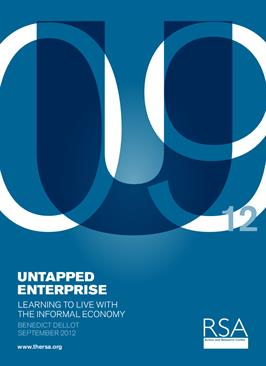The informal economy is perceived as a significant challenge for the UK. It reportedly undermines the country’s already unstable tax base, creates unfair competition for businesses that are fully compliant, and leaves many informal workers insecure in times of hardship.
Written in partnership with Community Links, our Untapped Enterprise report seeks to change the tone of the debate. We argue that engaging in informal activity is often a necessary step along the journey towards becoming a successful entrepreneur.
Our YouGov poll found that twenty percent of small business owners had traded informally when starting their company. Of these:
-
40 percent said one of the main reasons for doing so was because it gave them the breathing space needed before they had the capacity to register their business.
-
64 percent said it was because they first wanted to see if their business would be viable.
-
Only nine percent said they engaged in informal trading to earn extra income.
Nearly half (48 percent) of all respondents cited red tape as one of the biggest individual factors in preventing entrepreneurs from being able to register their business. Thirty-four percent identified high business and personal taxes as a major barrier to formalisation.
The report concludes that the punitive approach historically used in the UK to date isn’t working and that more should be done to support people to register their businesses.
We argue that the government consider recognising the informal economy to be a legitimate stepping stone that helps informal entrepreneurs make their way to the formal economy. Forty-seven percent of the RSA’s survey respondents agreed that engaging in informal trading is often a necessary step as part of the journey towards becoming a successful entrepreneur.
The report recommends:
-
Creating a single Hidden Economy National Committee which draws together key stakeholders to share information and data, and to devise new interventions
-
Creating a programme where businesses can be established in a very short timeframe (1-2 hours) face to face
-
Working with schools and colleges to design early intervention schemes targeted at groups of young people who are likely to enter self-employment (e.g. apprentices)
-
Establishing a new initiative for the Work Programme whereby contractors are paid on a case-by-case basis for helping hidden entrepreneurs to formalise their operations
-
Seeking to recruit and train 'formalisation' champions from the communities where targeted HMRC interventions are underway, thereby giving the authorities greater leverage to change local behaviours.
pdf 1.2 MB
Contributors

